Astrology and astronomy, two often-confused fields of study, have captivated the human imagination for centuries. While both deal with the celestial realm, their approaches and goals are vastly different. Astrology, a pseudo-science, revolves around the belief that the alignment of the stars and planets at the time of our birth determines our personality traits and future destiny. On the other hand, astronomy is a true scientific discipline dedicated to observing and understanding the mysteries of the universe. In this detailed article, we will debunk the myths behind zodiac signs, exploring the origins of astrology, the lack of scientific evidence, the role of psychological factors, and the scientific validity of astronomy. Prepare to have your preconceptions challenged as we unveil the truth behind these intriguing fields of study.
Contents
- The Difference Between Astrology and Astronomy
- Zodiac Signs: Myth or Reality?
- The Lack of Scientific Evidence
- Personality Traits and the Forer Effect
- The Role of Confirmation Bias
- Psychological Factors in Believing Astrology
- Astronomy’s Scientific Validity
- The Impact of Astrology on Society
- Conclusion
-
Frequently Asked Questions
- 1. Is astrology considered a science?
- 2. Can astrology accurately predict future events?
- 3. Are zodiac signs based on scientific evidence?
- 4. Can astrology determine personality traits?
- 5. How does astronomy contribute to human knowledge?
- 6. Is there any connection between astrology and astronomy?
- 7. Do astronomers study the influence of celestial bodies on human behavior?
- 8. Can psychological factors explain why people believe in astrology?
- 9. What is the Barnum effect in relation to astrology?
- 10. Can astrology have harmful effects on individuals and society?
- References
-
Frequently Asked Questions
- Can astrology predict the future?
- What is the difference between astrology and astronomy?
- Are zodiac sign traits universally applicable?
- Is there any scientific basis for astrology?
- Does the precession of Earth’s axis affect zodiac signs?
- What is the Ophiuchus controversy?
- How does confirmation bias influence astrology beliefs?
- What is the Barnum effect?
- How does astrology impact society?
- What is the role of astronomy in advancing human knowledge?
- References
- Read More
The Difference Between Astrology and Astronomy
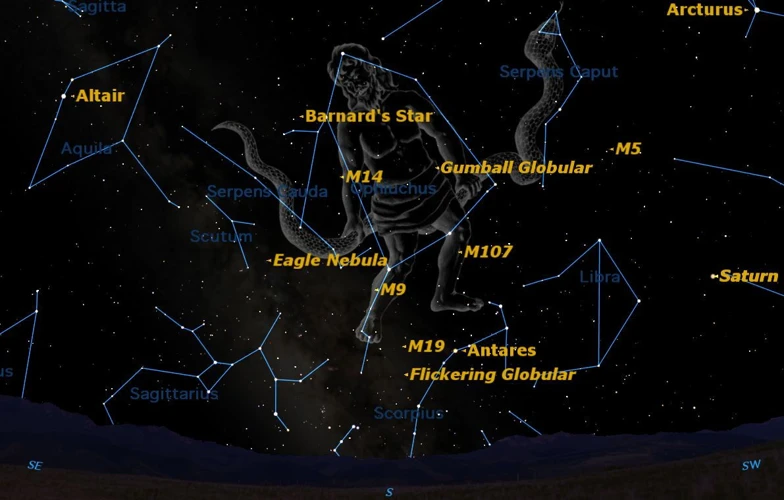
Astrology and astronomy may both involve the study of celestial objects, but their underlying principles and methodologies distinguish them from each other. Astrology, often considered a pseudo-science, explores the connection between the positions of celestial bodies at the time of an individual’s birth and their personality traits and life events. This practice is based on the belief that the positions of the stars and planets can influence human behavior. On the other hand, astronomy is a genuine scientific discipline focused on objectively observing and understanding the universe. Astronomers use advanced telescopes and instruments to investigate cosmic phenomena, such as stars, planets, galaxies, and black holes. Unlike astrology, astronomy utilizes the scientific method to test hypotheses and expand our knowledge of the cosmos. The stark contrast between these two fields highlights the importance of critical thinking and scientific inquiry when examining celestial phenomena.
Astrology: A Pseudo-Science Based on Zodiac Signs
Astrology is often regarded as a pseudo-science due to its lack of scientific evidence and reliance on anecdotal observations. This ancient practice is centered around the belief that the alignment and position of the stars and planets at the moment of an individual’s birth can determine their personality traits, behavior, and even future events. The foundation of astrology lies in the concept of the zodiac signs, which divide the sky into twelve equal parts. Each zodiac sign is associated with specific characteristics and traits. However, the categorization of individuals into these signs is based on generalizations rather than empirical data. While proponents argue that astrology offers insight into human nature, skeptics consider it a form of entertainment or a belief system akin to mythology rather than a truly scientific endeavor. It is important to approach astrology with critical thinking, recognizing that its claims lack rigorous scientific validation.
Astronomy: The Study of Celestial Phenomena
Astronomy, as a scientific discipline, is primarily concerned with the study of celestial phenomena and the objects that exist within the vast expanse of the universe. By utilizing powerful telescopes, observatories, and other advanced instruments, astronomers are able to observe and analyze various cosmic entities. These include stars, planets, galaxies, asteroids, comets, and even phenomena like supernovae and black holes. One of the main objectives of astronomy is to understand the nature and behavior of these celestial bodies and phenomena. Astronomers strive to uncover the physical properties of stars, such as their compositions, temperatures, and luminosities. They also investigate the formation and evolution of galaxies, exploring how structures in the universe have developed over time. Additionally, astronomers study planetary systems, both within our own solar system and beyond, to gain insights into the potential for extraterrestrial life. The field of astronomy has made significant contributions to our understanding of the universe, advancing human knowledge and stimulating our capacity for wonder and exploration.
Sources:
– For more information on the significance of oral tradition in African mythology, visit this article.
– Discover more about the beliefs and gods in ancient Rome by visiting this link.
– Wondering about the influence of planetary alignment on Earth’s energy? Learn more in this article.
Zodiac Signs: Myth or Reality?
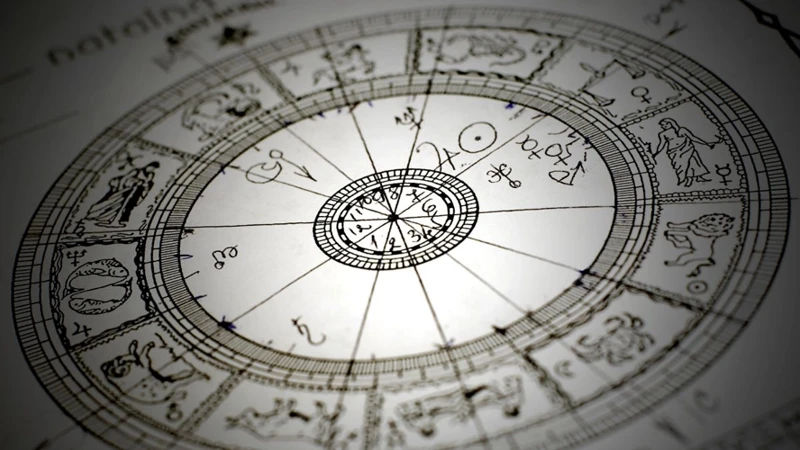
Zodiac signs have long been a subject of fascination and debate, but are they rooted in reality or merely myths? To understand their origins, we delve into ancient civilizations and their observations of the heavens. The concept of zodiac signs can be traced back to the Babylonians and their belief that celestial bodies held significance and influence over human lives. Over time, these beliefs were passed down through generations, shaping the practices of astrology. However, from a scientific standpoint, the precession of Earth’s axis challenges the validity of zodiac signs. This slow shift alters the alignment of constellations relative to the Sun’s position during different times of the year, rendering the traditional zodiac sign dates inaccurate. The controversial addition of Ophiuchus as the thirteenth sign further exposes the arbitrary nature of zodiac assignments. While zodiac signs may continue to captivate individuals, their scientific basis remains questionable.
The Origins of Zodiac Signs
The origins of zodiac signs can be traced back to ancient civilizations that sought to make sense of the world around them. The concept of dividing the sky into twelve segments, each associated with different symbols and qualities, can be observed in various cultures throughout history. One of the earliest recorded instances of zodiac signs can be found in ancient Mesopotamia, where astrologers developed a twelve-sign zodiac based on the constellations they observed. This system was later adopted by the ancient Egyptians and Greeks, who added their own mythological interpretations to the zodiac signs. The zodiac signs were traditionally associated with the movement of the sun through these constellations over the course of a year. However, due to the precession of the Earth’s axis, the alignment of the signs has gradually shifted over time. This means that the zodiac sign someone is assigned based on their birthdate may not necessarily align with the constellation that the sign represents. Despite these historical and scientific factors, many still find meaning and fascination in the ancient origins of zodiac signs and continue to explore their personal connections to these celestial symbols.
The Precession of Earth’s Axis
The Precession of Earth’s Axis is a fascinating phenomenon that plays a significant role in understanding the zodiac signs. It refers to the gradual change in the direction of Earth’s rotational axis over a period of approximately 26,000 years. This precession causes the positions of the stars and constellations to slowly shift over time. As a result, the alignment of the zodiac signs with the Earth’s seasons also changes over centuries. This phenomenon challenges the notion that individuals born under a specific zodiac sign possess consistent personality traits based on the alignment of the stars at their birth. In reality, due to the precession of Earth’s axis, the zodiac signs as we know them today do not align with their corresponding constellations from thousands of years ago. This misalignment undermines the credibility of astrology’s claims regarding the influence of zodiac signs on individual characteristics and fate. It is crucial to recognize the scientific understanding of the precession of Earth’s axis when evaluating astrology’s validity.
The Ophiuchus Controversy
The Ophiuchus Controversy has been a hot topic in the realm of astrology, stirring debate and confusion among enthusiasts and skeptics alike. Ophiuchus, also known as the Serpent Bearer, is a constellation situated along the ecliptic, the sun’s apparent path. According to astrologers, this constellation should be included as the 13th zodiac sign, shifting the dates and attributes of all existing zodiac signs. However, this proposed addition has faced significant opposition from astronomers and traditional astrologers. Astronomers argue that the zodiac is based on 12 equal divisions, each spanning 30 degrees in the sky, and the inclusion of Ophiuchus disrupts this established system. Traditional astrologers assert that the zodiac has a symbolic meaning and should not be altered based on the position of constellations. While the controversy surrounding Ophiuchus has sparked fascinating discussions, it is important to recognize that the scientific validity of astrology as a whole remains a subject of skepticism.
The Lack of Scientific Evidence
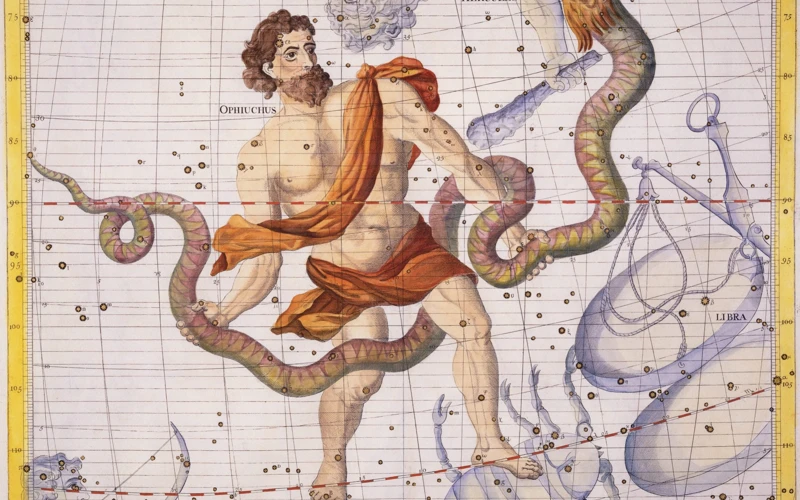
When it comes to astrology, one of the primary issues is the lack of scientific evidence supporting its claims. While astrology has been practiced for centuries, it has failed to meet the rigorous standards of scientific scrutiny. Scientific methodology demands that hypotheses be testable, replicable, and grounded in empirical evidence. Unfortunately, astrology falls short on all these fronts. The predictions and personality traits ascribed to zodiac signs are often vague and generalized, making it easy for individuals to interpret them in a way that confirms their preconceptions. This phenomenon, known as the Barnum Effect, feeds into the illusion of personalized readings and adds to the allure of astrology. Additionally, numerous studies have failed to find any empirical support for the traits linked to zodiac signs, further undermining astrology’s scientific validity. Despite its enduring popularity, astrology remains on uncertain ground when it comes to scientific credibility.
Scientific Methodology and Astrology
Scientific Methodology and Astrology
When it comes to scientific methodology, astrology falls short of meeting the rigorous standards upheld by the scientific community. Unlike astronomy, which relies on systematic observation, experimentation, and peer-reviewed research, astrology relies heavily on subjective interpretations and generalizations. Scientific methodology requires theories to be testable, falsifiable, and capable of making predictions. Astrology, however, lacks these fundamental characteristics. The predictions made by astrologers are often vague and open to various interpretations, making it difficult to objectively assess their accuracy. Additionally, there is no consensus among astrologers regarding the methodology for making predictions or the validity of different astrological practices. As a result, astrology cannot be considered a valid scientific discipline. It is important to recognize the distinction between astrology and astronomy to uphold the integrity of scientific methodology and foster a critical approach towards understanding the universe.
The Barnum Effect
The Barnum Effect is a psychological phenomenon that helps explain why people tend to believe generalized and vague personality descriptions, such as those often associated with zodiac sign traits. Also known as the Forer Effect, it refers to the tendency of individuals to believe that personality profiles or readings apply specifically to them, even when the descriptions are actually applicable to a wide range of people. This effect occurs because the statements are typically worded in a way that is broad enough to encompass various interpretations and can be related to by many individuals. It taps into the human desire for personal validation and a sense of uniqueness. The Barnum Effect demonstrates how individuals can perceive general statements about personality traits as highly accurate and personalized, a key factor in the continued popularity and belief in astrology. By highlighting these universal aspects of human behavior, the Barnum Effect sheds light on the psychological factors that contribute to the belief in astrology and the influence it has on individuals’ lives.
No Empirical Support for Zodiac Sign Traits
No Empirical Support for Zodiac Sign Traits:
– Lack of Scientific Studies: Despite the popularity of zodiac signs and the widespread belief in their accuracy, scientific studies have consistently failed to find any empirical evidence supporting the notion that specific personality traits are associated with particular zodiac signs. Researchers have conducted numerous studies over the years, examining large groups of individuals to identify any patterns or correlations between their personalities and zodiac signs. However, the results have consistently shown no statistically significant relationship between these factors.
– Inconsistent Personality Descriptions: Another reason for the lack of empirical support is the inconsistency in personality descriptions attributed to each zodiac sign. Different astrologers and astrology enthusiasts often provide varied and contradictory characterizations of the same zodiac sign. This discrepancy highlights the subjectivity and ambiguity surrounding the traits associated with each sign. If zodiac signs genuinely had fixed characteristics, we would expect consistent descriptions across different sources, which is not the case.
– Randomized Studies: To further evaluate the validity of zodiac sign traits, researchers have conducted controlled studies. In these experiments, participants were given personalized astrology readings based on their zodiac sign, but the readings were actually randomized and unrelated to their birth charts. Despite participants believing the readings to be accurate, their assessments of the accuracy were no different from chance. These findings indicate that the perceived accuracy of zodiac sign traits may be attributed to other psychological factors, such as the Barnum Effect and confirmation bias, rather than any real relationship between a person’s personality and their zodiac sign.
– Astrology’s Lack of Predictive Power: Additionally, astrology’s inability to demonstrate predictive power further undermines claims of zodiac sign traits. If zodiac signs genuinely influenced personality traits, we would expect individuals with the same sign to exhibit similar behaviors or experiences. However, studies have consistently shown that individuals with the same zodiac sign can have vastly different personalities and life outcomes, further suggesting that zodiac sign traits do not hold any empirical validity.
Despite the long-standing belief in zodiac sign traits, scientific studies have repeatedly found no empirical support for the connection between specific personality traits and zodiac signs. The inconsistency of personality descriptions, the results of randomized studies, and the lack of astrology’s predictive power collectively challenge the validity of zodiac sign traits. It is vital to approach astrology with skepticism and rely on evidence-based approaches to understanding human behavior and personality.
Personality Traits and the Forer Effect
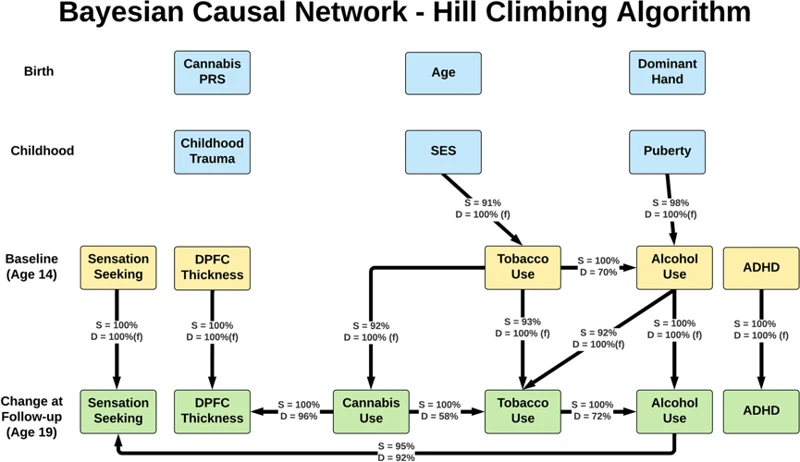
When it comes to astrology, one of the major elements often discussed is the idea of personality traits associated with zodiac signs. However, these generalized statements about personality traits are often rooted in a psychological phenomenon known as the Forer Effect. The Forer Effect refers to the tendency of individuals to believe vague and general descriptions about themselves as highly accurate and personalized. In the context of astrology, these personality traits assigned to zodiac signs are often worded in such a way that they could apply to almost anyone. This plays into our inherent desire to find meaning and validation in our lives, leading us to accept these generalizations as accurate representations of who we are. It’s important to approach these personality descriptions with a critical eye and recognize the limitations and biases inherent in this type of interpretation.
The Generalized Statements of Zodiac Sign Personality Traits
The Generalized Statements of Zodiac Sign Personality Traits
The concept of zodiac signs encompasses twelve distinct astrological signs, each attributed to specific months of the year. Astrologers often assign personality traits and characteristics to individuals based on their zodiac sign. However, it is crucial to recognize that these personality traits are highly generalized and lack empirical evidence. For example, individuals born under the sign of Aries may be described as assertive, confident, and ambitious, while those born under the sign of Libra are often portrayed as balanced, harmonious, and diplomatic. While these descriptions may resonate with some individuals, they fail to account for the incredible diversity and complexity within human nature. It is essential to approach zodiac sign personality traits with skepticism and critical thinking, understanding that they are not scientifically validated or universally applicable. By relying on such generalized statements, we may inadvertently limit our understanding of ourselves and others, neglecting the richness and individuality of human experiences.
The Forer Effect and the Illusion of Personalized Readings
The Forer Effect is a psychological phenomenon that plays a significant role in the appeal and perceived accuracy of astrology readings. Named after the psychologist Bertram R. Forer, this effect refers to the tendency of individuals to accept vague or general statements about their personality as highly accurate and personalized. When it comes to astrology readings, the Forer Effect comes into play as people encounter descriptions that could apply to almost anyone. These generalized statements are intentionally crafted to be broad enough to resonate with a wide audience. However, individuals tend to interpret them as highly specific and accurate because they seek validation and connections to their own lives. The illusion of personalized readings is perpetuated because people tend to remember the hits and disregard the misses, cherry-picking the information that aligns with their beliefs. This psychological phenomenon highlights the powerful influence of our own biases and the human desire for validation and a sense of purpose in the face of the unknown.
The Role of Confirmation Bias
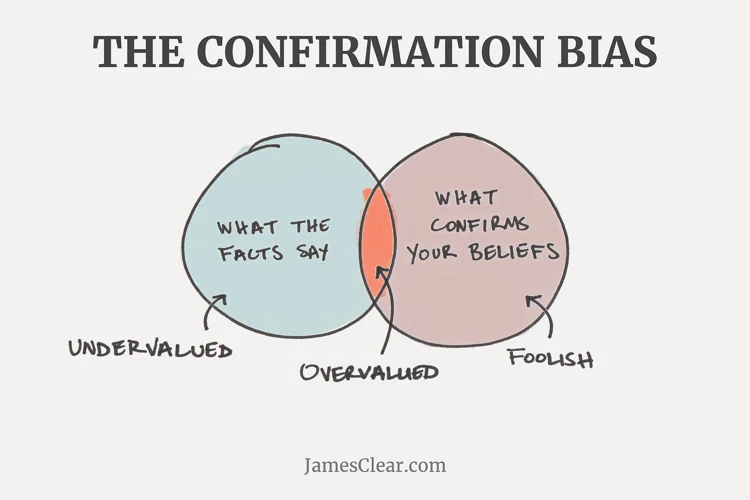
Confirmation bias plays a significant role in the belief and perpetuation of astrology. This cognitive bias refers to the tendency of individuals to seek out and interpret information in a way that confirms their preexisting beliefs or expectations, while ignoring or dismissing contradictory evidence. When it comes to astrology, individuals often cherry-pick examples that align with their zodiac sign traits, attributing personal experiences and characteristics to the influence of the stars and planets. Confirmation bias not only reinforces existing beliefs but can also contribute to the self-fulfilling prophecy, where individuals actively mold their behavior and perceptions to fit the description of their zodiac sign. This psychological phenomenon can limit critical thinking and independent evaluation, further perpetuating the belief in astrology despite the lack of scientific evidence.
Seeking Confirmatory Information and Ignoring Contradictions
Seeking confirmatory information and ignoring contradictions is a psychological tendency that often plays a role in people’s belief in astrology. When individuals turn to astrology for guidance or validation, they often seek out information that confirms their existing beliefs or desires. This is known as confirmation bias, which is a cognitive bias that leads people to selectively interpret, remember, or seek evidence that aligns with their preconceived notions. For example, if someone believes they are a highly creative and adventurous individual because their zodiac sign is associated with these traits, they will actively look for examples or experiences that support this belief and may dismiss or overlook any evidence to the contrary. This bias can perpetuate the belief in astrology, as it reinforces the notion that the astrology predictions are accurate. Additionally, individuals may also engage in motivated reasoning, where they use their pre-existing beliefs to interpret ambiguous or contradictory information in a way that supports their desired outcome. This selective attention and interpretation of information can lead people to disregard any evidence that challenges the validity of astrology. By seeking confirmatory information and ignoring contradictions, individuals can inadvertently strengthen their belief in astrology without critically evaluating its claims or considering alternative explanations.
The Influence of Self-Fulfilling Prophecies
The Influence of Self-Fulfilling Prophecies:
– Confirmation Bias: When individuals believe in the accuracy of astrology and read horoscopes that confirm their preconceived notions about themselves, they tend to interpret vague statements to fit their personal experiences. This confirmation bias reinforces their belief in the validity of astrology, leading them to actively seek out and value information that aligns with their expectations.
– Behavioral Changes: Believing in the power of astrology can lead individuals to modify their behavior based on their zodiac sign traits. For example, if someone reads that their zodiac sign predicts success in a particular field, they may pursue a career in that field, putting in extra effort and increasing their chances of success. This behavioral change is driven not by the accuracy of astrology, but by the person’s belief in it.
– Subconscious Influence: Self-fulfilling prophecies can also occur on a subconscious level. When individuals are aware of certain traits predicted by their zodiac sign, they may unconsciously exhibit behaviors that align with those traits. Others may perceive these behaviors and respond accordingly, reinforcing the initial belief in the accuracy of astrology.
– Emotional Regulation: Believing in astrology and reading horoscopes that predict specific emotional experiences can influence individuals’ emotional states. If a horoscope predicts a challenging day, someone who believes in astrology may enter the day with a negative mindset, affecting their perception of events and potentially leading to a self-fulfilling prophecy of a difficult day.
By understanding the influence of self-fulfilling prophecies, we can see how beliefs in astrology can shape individuals’ thoughts, behaviors, and emotional experiences. It is essential to approach astrology critically and consider alternative explanations for the perceived accuracy of zodiac sign traits.
Psychological Factors in Believing Astrology
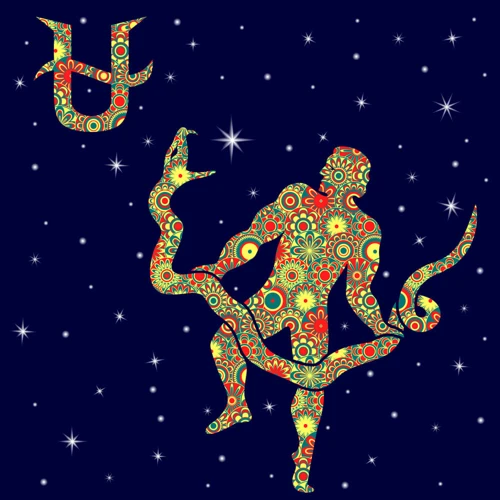
The belief in astrology is not solely based on its supposed scientific validity, but it is also influenced by various psychological factors. One such factor is the human need for control and a sense of belonging. Astrology offers individuals a way to make sense of the world and their place in it by providing a framework that suggests their lives are guided by the alignment of celestial bodies. Additionally, pattern recognition plays a role in the acceptance of astrology. The human brain is naturally wired to identify patterns, and astrology’s generalized statements about personality traits and future events can create the illusion of consistency and accuracy. Cognitive biases, such as confirmation bias, also contribute to the belief in astrology. People tend to seek out information that confirms their existing beliefs and ignore contradictory evidence. This selective interpretation reinforces their faith in astrological predictions. Understanding these psychological factors is crucial in comprehending why astrology continues to hold influence over a significant portion of the population despite lacking scientific credibility.
Need for Control and Belonging
The belief in astrology often stems from the human need for control and a sense of belonging. People have an innate desire to feel that they have some control over their lives and can make sense of the world around them. Astrology offers a semblance of control by providing a framework that claims to predict and explain behavior and events based on zodiac signs. By attributing personality traits and life outcomes to celestial alignments, individuals may feel a sense of reassurance in believing that their lives are guided by a greater cosmic force. Additionally, astrology provides a sense of belonging as people connect with others who share their zodiac sign and its associated characteristics. This shared identity and belonging create a sense of community and validation, reinforcing the belief in astrology. However, it’s important to note that the psychological need for control and belonging does not validate the scientific accuracy or empirical evidence behind astrology. Rather, it highlights the underlying psychological factors that contribute to its popularity and appeal to many individuals.
Pattern Recognition and Cognitive Biases
Pattern recognition and cognitive biases play a significant role in the belief and acceptance of astrology. Humans have an innate tendency to identify patterns and make connections, even when they may not exist. This cognitive process often leads individuals to find meaning and significance in random events or information, such as zodiac sign predictions. When people read horoscopes or receive personalized readings, they are prone to seek patterns and connections that confirm their existing beliefs about themselves. This confirmation bias reinforces their belief in astrology and makes them more likely to accept generalized statements as accurate descriptions of their personality traits. Additionally, cognitive biases like the Barnum effect, where individuals believe generic statements about themselves are highly specific, contribute to the allure of astrology. This phenomenon occurs when people interpret vague or ambiguous statements as personally relevant due to their desire for validation. The combination of pattern recognition and cognitive biases creates a powerful psychological mechanism that sustains belief in astrology, despite the lack of empirical evidence supporting its claims.
Astronomy’s Scientific Validity
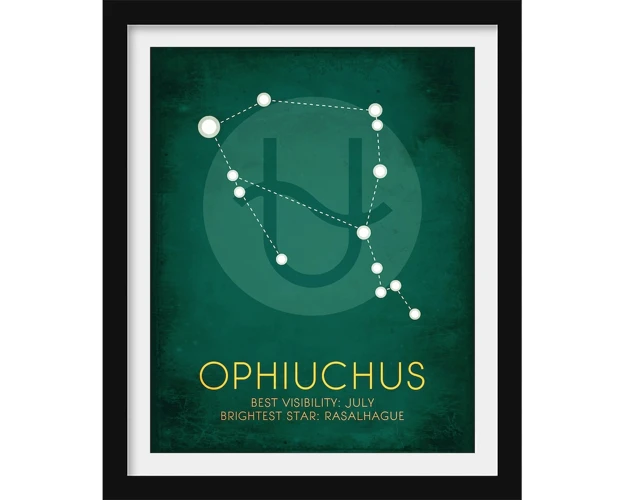
Astronomy stands at the forefront of scientific validity, embracing rigorous methodologies to unravel the mysteries of the cosmos. By employing the scientific method, astronomers conduct systematic observations and gather empirical evidence to further our understanding of the universe. Through the use of cutting-edge telescopes, spectroscopy, and other advanced instruments, astronomers study celestial objects, including stars, planets, galaxies, and nebulae, uncovering their properties, compositions, and interactions. They analyze data, develop models, and formulate theories that are continually tested and refined. Astronomy has contributed immensely to our knowledge, unveiling groundbreaking discoveries such as exoplanets, gravitational waves, and the expanding nature of the universe. Its scientific validity stems from its reliance on evidence-based research and the continual advancement of astrological technologies, making it a crucial field in human quest for knowledge about the cosmos.
The Scientific Methodology of Astronomy
The scientific methodology of astronomy is a rigorous approach that distinguishes it as a genuine scientific discipline. Astronomers utilize a systematic process of observation, experimentation, and analysis to gain knowledge about the universe. Through the use of telescopes, space probes, and other advanced instruments, astronomers gather data from celestial objects and phenomena, such as stars, planets, galaxies, and cosmic radiation. This data is then analyzed using mathematical models and statistical methods to identify patterns, establish correlations, and formulate scientific theories. The scientific method ensures that observations are objective, repeatable, and verifiable, allowing for the validation or rejection of hypotheses. The peer review process in astronomy ensures that scientific findings undergo critical evaluation by experts in the field before being accepted as valid. This methodology ensures that the conclusions reached in astronomy are based on empirical evidence and logical reasoning rather than subjective beliefs or interpretations. Thus, the scientific methodology of astronomy distinguishes it as a reliable and valid scientific discipline, separate from the pseudoscience of astrology.
The Observable Universe: Stars, Planets, and More
The Observable Universe is a vast expanse filled with an extraordinary array of celestial objects. One of the most captivating aspects of this cosmic landscape is the abundance of stars. Stars come in various sizes, temperatures, and colors, ranging from red dwarfs to blue giants. They are the celestial powerhouses that generate light and heat through nuclear fusion. These stellar bodies not only provide illumination but also serve as the building blocks of galaxies.
Accompanying the stars are a multitude of planets, each with its own unique characteristics. From the scorching hot infernos near their parent stars to the icy realms in the outer reaches, planets showcase a diverse range of environments. Some, like our very own Earth, harbor the necessary conditions for life to thrive. These planets are the subject of intense scientific exploration, as we seek to understand the potential for extraterrestrial life and broaden our understanding of the cosmos.
The Observable Universe also encompasses other fascinating objects, such as galaxies, nebulae, comets, and asteroids. Galaxies, massive congregations of stars and other celestial matter, exist in different shapes and sizes, including spiral, elliptical, and irregular forms. Nebulae, on the other hand, are vast clouds of gas and dust that often serve as the birthplaces of new stars. Comets and asteroids, remnants of the early solar system, provide valuable insights into our cosmic history.
Through the lens of astronomy, we are able to explore and unravel the mysteries of the Observable Universe. By observing and studying these celestial objects, astronomers are continuously expanding our knowledge, unveiling the secrets of star formation, planetary systems, galactic evolution, and the overall structure of the cosmos. This scientific journey not only satisfies our innate curiosity but also deepens our appreciation for the remarkable beauty and complexity of the universe in which we reside.
The Role of Astronomy in Advancing Human Knowledge
Astronomy, with its rigorous scientific methodology, has played a pivotal role in advancing our understanding of the universe and expanding human knowledge. Through the observations and analysis of celestial objects, astronomers have made significant discoveries that have revolutionized our perception of space, time, and the origins of the cosmos. By studying celestial phenomena such as stars, planets, galaxies, and nebulae, astronomers have been able to uncover deep insights into the nature of the universe. Their meticulous observations and calculations have revealed the laws of physics that govern celestial bodies, helped refine our understanding of gravity, and even contributed to our knowledge of the fundamental building blocks of matter. Astronomy has led to groundbreaking discoveries, such as the identification of exoplanets outside our solar system, the existence of supermassive black holes at the centers of galaxies, and the measurement of cosmic microwave background radiation, providing evidence for the Big Bang theory. Astronomy’s role in technological advancements cannot be understated. The development of powerful telescopes and innovative instruments, as well as the use of space probes and satellites, have all been driven by the pursuit of astronomical knowledge. This has not only expanded our understanding of the universe but also had practical applications in fields such as navigation, communications, and imaging technology. The impact of astronomy on advancing human knowledge is undeniable, and its continuous exploration and investigation of the cosmos hold great potential for further scientific breakthroughs in the future.
The Impact of Astrology on Society

Astrology has had a significant impact on society, permeating various aspects of popular culture and entertainment. Many people find fascination in exploring their zodiac sign and reading horoscopes for guidance and insight into their lives. Zodiac sign compatibility is often a topic of interest and discussion, particularly in relationships. Astrology has become a form of entertainment, with astrology-themed books, websites, and apps gaining popularity. However, astrology also faces skepticism and criticism from those who view it as a pseudoscience. The reliance on generalized statements about personality traits and future events can lead to biased interpretations and false predictions. Some believe that astrology’s influence on decision-making can be potentially harmful, as it may lead individuals to make important life choices based on unfounded predictions rather than sound, rational reasoning. It is important to approach astrology with a critical mindset and understand its limitations in order to separate myth from reality.
Entertainment and Popularity of Zodiac Sign Readings
The entertainment factor and widespread popularity of zodiac sign readings cannot be overlooked. People are often drawn to astrology as a form of amusement and curiosity, seeking insights into their personalities and future prospects. Zodiac sign readings have become prevalent in various forms, including newspaper horoscopes, online quizzes, and personalized astrology apps. These readings offer generalized statements about personality traits, compatibility with others, and potential life events, which can be intriguing and entertaining to many individuals. The widespread availability of zodiac sign readings contributes to their popularity, making them easily accessible and shareable on social media platforms. The entertainment industry also capitalizes on astrology, with movies, TV shows, and books featuring characters and storylines based on zodiac signs. This popularity is fueled by the desire for self-discovery, entertainment, and a sense of belonging within a community that shares similar astrological beliefs. However, it is important to recognize that while zodiac sign readings may provide temporary enjoyment, they lack scientific validity and should be approached with a critical mindset.
Skepticism and Criticism of Astrology
Astrology has long been a subject of skepticism and criticism from various quarters, including scientists, skeptics, and rational thinkers. Those who question the validity of astrology argue that it lacks a solid foundation in empirical evidence and scientific principles. The predictions and interpretations made by astrologers are often seen as vague and open to interpretation, making it difficult to determine their accuracy. Critics argue that astrology relies on the Barnum effect, which is the tendency for individuals to believe generalized statements about themselves that are actually applicable to a wide range of people. This means that the personality traits and predictions associated with zodiac signs can apply to almost anyone, leading to a sense of personalization and validation. Skeptics also highlight the lack of consistency and reproducibility in astrological readings, making it difficult to establish astrology as a reliable and valid practice. Despite the criticisms, astrology continues to have a significant following, with many individuals finding comfort, entertainment, and guidance in their zodiac sign readings. Nevertheless, skepticism and criticism serve as a reminder to approach astrology with a critical mindset and to consider the lack of scientific evidence before placing too much faith in its predictions and interpretations.
Possible Harmful Effects of Astrological Beliefs
Astrological beliefs, despite their popularity and entertainment value, can potentially have harmful effects on individuals and society as a whole. One of the main concerns is the promotion of fatalistic thinking. When individuals ascribe all aspects of their lives to their zodiac signs, they may develop a fixed mindset that inhibits personal growth and self-improvement. This can lead to a sense of helplessness and a lack of accountability for one’s actions. Additionally, relying on astrology for decision-making can hinder critical thinking skills and logical reasoning. Instead of carefully considering options and gathering information, individuals may make choices solely based on their perceived astrological guidance.
Another harmful effect of astrological beliefs is the perpetuation of stereotypes and biases. Zodiac sign personality traits are often generalized, painting broad strokes about individuals based solely on their birthdates. This creates a biased perception of people and can lead to prejudice and discrimination. Assigning predetermined characteristics to individuals can contribute to societal divisions and hinder true understanding and empathy.
Astrology’s emphasis on predictions and fortune-telling can also have negative consequences. People who rely heavily on astrology may become overly preoccupied with future events and outcomes, neglecting the present moment and personal agency. This can lead to anxiety, stress, and a constant need for reassurance.
Lastly, the commercialization of astrology can exploit vulnerable individuals who are seeking guidance and meaning in their lives. Many astrologers charge exorbitant fees for personalized readings, creating a business around what is essentially a form of entertainment. This can create a false sense of hope and dependence, potentially leading to financial strain and exploitation.
It is important to critically evaluate astrological beliefs and be mindful of the potential harmful effects they may have. Encouraging a balanced perspective and promoting reliance on evidence-based information can help individuals make informed decisions and maintain their well-being.
Conclusion

In conclusion, the comparison between astrology and astronomy reveals significant differences in their approaches, methodologies, and scientific validity. While astrology continues to captivate and entertain many individuals, its status as a pseudo-science becomes apparent when scrutinized under scientific scrutiny. The lack of empirical evidence, reliance on generalized statements, and susceptibility to psychological biases all cast doubts on its claims of accurately predicting personality traits and life events based on zodiac signs. In contrast, astronomy stands as a legitimate scientific discipline, grounded in the rigorous application of the scientific method and the pursuit of objective knowledge about the universe. Through advanced technology and observation, astronomers continue to unravel the mysteries of the cosmos, uncovering new insights about stars, planets, and beyond. While astrology may provide entertainment and a sense of belonging, it is crucial to approach it with skepticism and critical thinking. By embracing the scientific rigor of astronomy, we can genuinely expand our understanding of the universe and unravel its secrets.
Frequently Asked Questions

1. Is astrology considered a science?
No, astrology is not considered a science. It lacks the scientific rigor and methodology required for a discipline to be classified as a science.
2. Can astrology accurately predict future events?
There is no scientific evidence to support the claim that astrology can accurately predict future events. The positions of celestial bodies at the time of a person’s birth have not been shown to have any significant influence on their future.
3. Are zodiac signs based on scientific evidence?
No, zodiac signs are not based on scientific evidence. They originated from ancient mythology and folklore, rather than empirical research or scientific analysis.
4. Can astrology determine personality traits?
Astrology suggests that the alignment of the stars and planets at the time of birth can determine personality traits. However, there is no scientific evidence supporting this claim.
5. How does astronomy contribute to human knowledge?
Astronomy contributes significantly to our understanding of the universe and our place within it. It helps us learn about the origins of the cosmos, the evolution of stars and galaxies, and the search for extraterrestrial life.
6. Is there any connection between astrology and astronomy?
While astrology and astronomy both deal with celestial bodies, they are distinct and unrelated fields. Astronomy is a scientific discipline, while astrology is considered a pseudoscience.
7. Do astronomers study the influence of celestial bodies on human behavior?
No, astronomers do not study the influence of celestial bodies on human behavior. Their focus is on observing and understanding the physical properties and behaviors of celestial objects themselves.
8. Can psychological factors explain why people believe in astrology?
Yes, psychological factors such as the need for control and belonging, as well as cognitive biases like pattern recognition, can contribute to why people believe in astrology despite the lack of scientific evidence.
9. What is the Barnum effect in relation to astrology?
The Barnum effect refers to the tendency of individuals to believe generalized and vague statements about themselves, often found in astrology readings, as highly accurate and personalized. It is a psychological phenomenon that plays a role in the perceived accuracy of astrological predictions.
10. Can astrology have harmful effects on individuals and society?
While astrology is often viewed as harmless entertainment, it can potentially have negative effects. People may make important life decisions based on astrological advice, which could be detrimental if it lacks any scientific basis or objective evidence.
References
- Zodiac Myths and Truths Debunked: What Astrology is and …
- The Science and History of Astrology: Debunking Myths
- Astrophysicist Debunks Horoscopes with Basic Astronomy (+ …
Frequently Asked Questions

Can astrology predict the future?
No, astrology cannot predict the future. It is based on the belief that the positions and movements of celestial bodies can influence human behavior and personality traits, but there is no scientific evidence to support the idea that astrology can accurately predict future events.
What is the difference between astrology and astronomy?
Astrology is a pseudoscience that focuses on interpreting the supposed influence of celestial bodies on human behavior and personality. On the other hand, astronomy is a scientific study that examines the physical properties, movements, and origins of celestial objects.
Are zodiac sign traits universally applicable?
No, zodiac sign traits are not universally applicable. Zodiac sign personality traits are generalized statements that could apply to anyone, regardless of their birth date. They lack scientific evidence and are based on subjective interpretations.
Is there any scientific basis for astrology?
No, there is no scientific basis for astrology. It does not follow the principles of the scientific method and lacks empirical evidence to support its claims. Astrology is considered a pseudoscience by the scientific community.
Does the precession of Earth’s axis affect zodiac signs?
Yes, the precession of Earth’s axis affects the alignment of the constellations with the zodiac signs. Over time, the positions of stars and constellations shift, causing a discrepancy between the zodiac signs and their corresponding constellations in the sky.
What is the Ophiuchus controversy?
The Ophiuchus controversy refers to the addition of a 13th zodiac sign, Ophiuchus, which lies along the ecliptic. However, this addition is not recognized by mainstream astrologers and is not widely used in astrology interpretations.
How does confirmation bias influence astrology beliefs?
Confirmation bias plays a significant role in astrology beliefs. People tend to seek out information that confirms their existing beliefs in astrology and ignore or downplay any contradictory evidence. This bias reinforces the belief in astrology, even in the absence of scientific validation.
What is the Barnum effect?
The Barnum effect refers to the tendency of individuals to accept vague and generalized statements as accurate descriptions of themselves. Astrology readings often utilize these generalized statements, leading individuals to believe they are receiving personalized insights, when in reality, the statements could apply to anyone.
How does astrology impact society?
Astrology has a significant impact on society, primarily in the realm of entertainment and popular culture. Zodiac sign readings are widely consumed for entertainment purposes, and horoscopes often shape individual perceptions and decision-making. However, astrology also faces criticism and skepticism from those who view it as a pseudoscience.
What is the role of astronomy in advancing human knowledge?
Astronomy plays a crucial role in advancing human knowledge by exploring and studying the vast universe. It helps scientists understand the origins of celestial objects, the behavior of stars and galaxies, and the fundamental laws of physics. Astronomy has led to numerous discoveries and breakthroughs that have expanded our understanding of the cosmos.
References
- Astrology isn’t science, but your horoscope is more real than …
- Astrology Myths Debunked: The Truth About Your ‘New’ Sign







